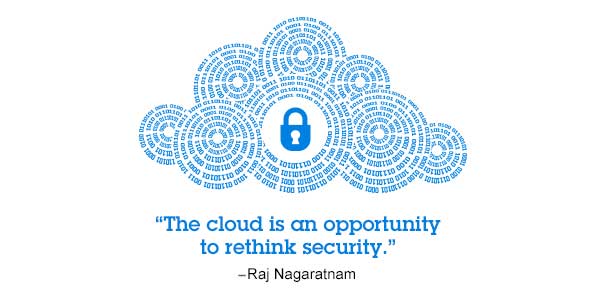
Nowadays, cloud computing is becoming more ubiquitous, thanks to the many benefits that it affords organizations. By relying on cloud-based information technology systems, enterprises are able to streamline their data processing tasks, optimize internal and external communication, efficiently share critical corporate data, and make vital business decisions more quickly. However, cloud security remains to be a concern that stirs anxiety even among the most forward-thinking businesses.
Enterprises most certainly have a reason to worry. Nowadays, attackers come in a variety of forms and employ numerous techniques to exploit vulnerabilities of IT systems and to compromise companies’ data in the cloud. Data breaches, account hijacking, denial-of-service attacks, and commandeering cloud services to support nefarious activities like spamming, phishing, and hosting are just some of the most worrisome threats that organizations face according to the Cloud Security Alliance. Add to this the possibility of other problems, including system downtimes, which can leave a serious dent on a company’s bottom line, as well as the possibility of companies not being able to comply with industry and government standards on data theft prevention and privacy protection because of these same security threats.
Cloud Security For Businesses:
Indeed, it is very easy for enterprises today to overlook the importance of security in the cloud, especially those relying on public cloud for business-critical applications. Organizations tend to be complacent about possible risks, simply because they rely too much on the idea that their cloud service providers can and will take care of securing their cloud infrastructure from all threats and in all fronts. The reality is that, most of the time, these companies don’t have full visibility over the infrastructure they are using, and they don’t have sufficient capability to adequately monitor it.

Despite the increasing sophistication of threats, however, it is still possible to develop advanced security features for cloud-based IT systems. For one thing, companies can work with their providers so that they can gain complete access into the inherent security functionalities of the infrastructure. For another, they can also rely on advanced security and compliance platforms that can deliver comprehensive visibility and continuous protection for all of their servers, whether these are in data centers, private clouds, or public clouds.
Ideally, companies should consider deploying a security platform that provides multiple benefits. It should be able to:
- Afford complete visibility into all systems in order to expose security configuration errors, uncover system weaknesses, and alert the organization to possible signs of compromise.
- Allow security to be an integral part of continuous development processes like the DevOps Cycle in order to maintain the security team’s speed and agility.
- Employ microsegmentation and traffic discovery—security services that can discover blind spots and threats that have been overlooked by the perimeter.
- Automate compliance functions to eliminate manual processes that prevent compliance teams from performing efficiently.
Continuous cloud security is not only possible; it’s also much easier if you have advanced solutions at your disposal. They not only allow your company to reap the benefits of using the cloud, they also allow you to rest easy, knowing that you’re protected from a variety of sophisticated threats.


















Be the first to write a comment.